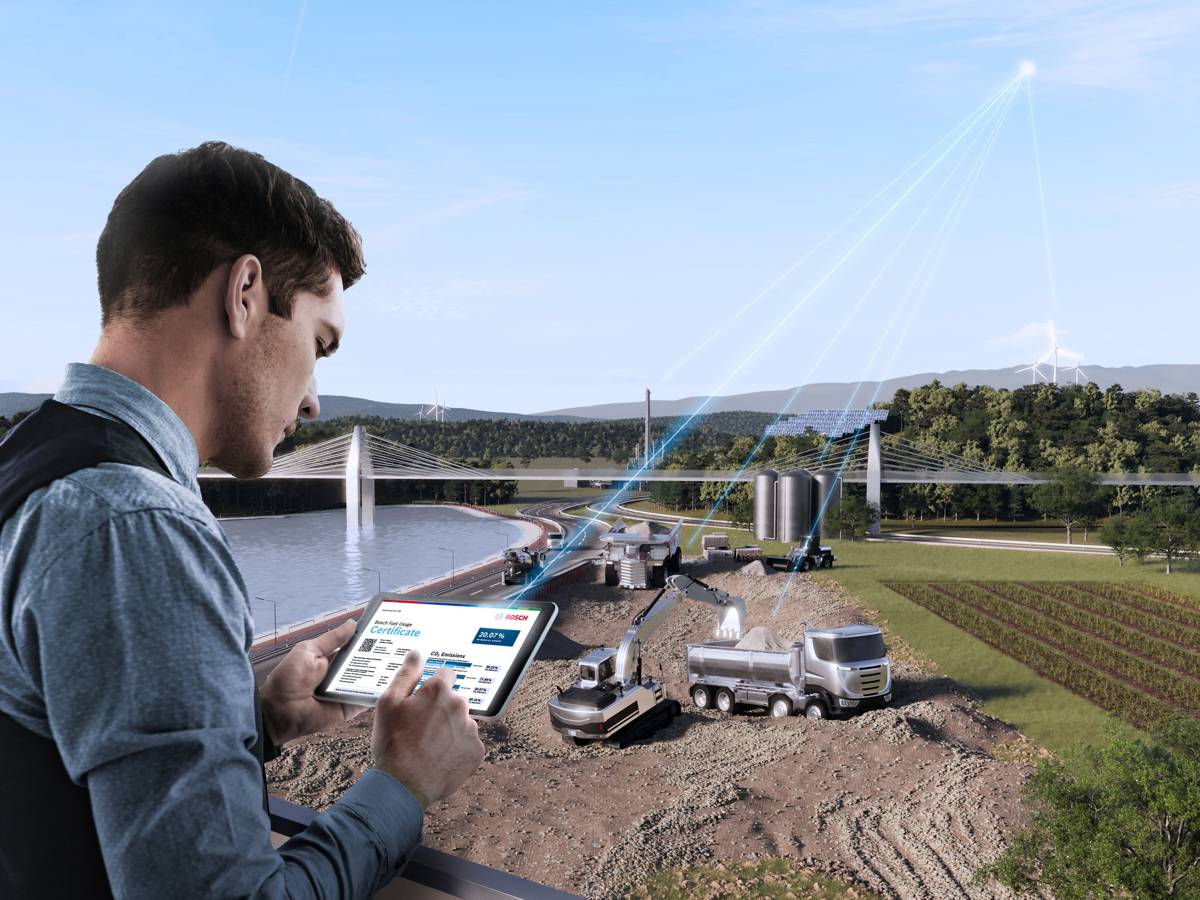Bosch’s Sustainable Powertrain Innovations featured at bauma 2025
As the construction industry faces mounting pressure to reduce carbon emissions, Bosch is charging ahead with a versatile suite of sustainable powertrain solutions.
At bauma 2025, the world’s leading trade fair for construction machinery, Bosch, alongside its subsidiaries Bosch Rexroth and Bosch Engineering, is set to unveil cutting-edge technologies that promise to reshape how construction machinery operates. From renewable synthetic fuels to hydrogen engines and full electrification, Bosch is aligning innovation with climate responsibility.
According to Bosch, over one million new construction vehicles will roll off production lines in 2025 alone. And while these machines differ widely in function and power, the majority will still rely on diesel engines. That’s precisely where Bosch sees an opportunity—not just to maintain the power and durability the industry relies on but to make it greener from the ground up.
“Renewable synthetic fuels make operating both new and existing vehicles much more climate-friendly,” says Jan-Oliver Roehrl, executive vice president of Bosch Power Solutions and head of Bosch’s commercial vehicle initiatives. “And in the future, hydrogen engines and electrification also stand to make construction machinery much more sustainable.”
Renewable Fuels
Let’s start with what’s already on the table: renewable synthetic fuels such as HVO100. These low-carbon alternatives are derived from residual and waste materials, making them significantly more climate-friendly than conventional fossil diesel. Better still, they’re “drop-in” compatible—requiring no engine modifications and offering a smooth transition for fleets not ready to abandon combustion engines altogether.
Currently, construction machinery is subject to strict exhaust emission standards such as Stage V in Europe, Tier 4 in the U.S., and Phase IV in China. Yet, regulations focusing on carbon dioxide and broader climate-relevant emissions remain relatively scarce. That’s why Bosch is leaning into fuels like HVO100, ensuring its injection systems are compatible and optimised for these advanced energy sources.
Bosch also forecasts that even by 2035, 80% of new construction vehicles over 56 kilowatts will still use diesel engines. That’s why the company continues to invest in developing injection and urea dosing technologies to keep combustion systems efficient, clean, and compliant across global markets.
The Digital Fuel Twin
To further amplify the benefits of synthetic fuels, Bosch has introduced the Digital Fuel Twin—a software solution designed to document and certify fuel usage and sustainability. This digital twin traces the journey of renewable fuel from production to pump, offering detailed certification that includes the exact carbon footprint of fuel consumed.
This isn’t just a fancy spreadsheet. It’s a robust digital verification system that construction companies can use to prove their environmental commitments. With this tool, fleet operators can finally quantify the climate benefits of switching to synthetic fuels—a big win for both transparency and ESG reporting.
Hydrogen Engines
Now, what about hydrogen? Often heralded as the fuel of the future, hydrogen-powered combustion engines could be a game-changer for construction. And the good news? We’re not starting from scratch.
According to Bosch, around 80 to 90 percent of the tech in today’s hydrogen engines is transferable from existing combustion systems. That means less R&D, faster deployment, and lower costs. Provided the hydrogen is green (produced from renewable energy), these engines offer a near-zero carbon solution.
“This is precisely where hydrogen engines, with their high efficiency and robustness, can really excel,” Roehrl explains. “The first applications of hydrogen engines featuring Bosch injection technology will be launched this year.”
Bosch is already knee-deep in over 100 development projects globally, exploring both port- and direct-injection systems. There’s also considerable interest in using hydrogen engines for large-scale applications such as mining dump trucks—scenarios that demand resilience, power, and compactness.
Powering the Future, Wire by Wire
While fuels and hydrogen address one side of the sustainability puzzle, electrification brings another dimension. Bosch Rexroth’s eLION platform is leading the charge, offering a broad range of electric motors, inverters, gearboxes, and software tailored for both mobile and stationary machinery.
And the innovation doesn’t stop there. Rexroth is expanding into 96-volt vehicle systems and, by the end of 2025, will launch a standardised software suite for all voltage classes. On the high-voltage front, Bosch Engineering is presenting a compact, high-efficiency 800-volt electric powertrain designed for applications with serious energy demands and tight space constraints.
Think wheel loaders, for example. These heavy-duty machines often face limitations in installation space, yet require considerable power—a problem Bosch’s new electric systems aim to solve without compromise.
A United Front at bauma 2025
If you’re planning to attend bauma 2025, Bosch’s booths (A3/327 and A4/526) are definitely worth a visit. Together, Bosch, Bosch Rexroth, and Bosch Engineering will showcase their innovations under one roof, giving industry leaders a chance to see how the future of construction machinery is being built—and powered.
The message is clear: the transition to low-carbon construction isn’t a fantasy. It’s already happening, and Bosch is right at the heart of it.
Momentum for a Cleaner Industry
With construction being one of the most energy-intensive industries globally, the strides Bosch is making can’t be overstated. Their multi-pronged approach to sustainability—renewable fuels, hydrogen power, and electrification—isn’t just a tech showcase. It’s a roadmap to real, practical change.
As emissions regulations tighten and public scrutiny grows, companies that invest in sustainable powertrain technologies today won’t just reduce their carbon footprint—they’ll also future-proof their operations.
And for an industry that’s always been about building the future, that sounds like a plan worth laying the foundation for.





























